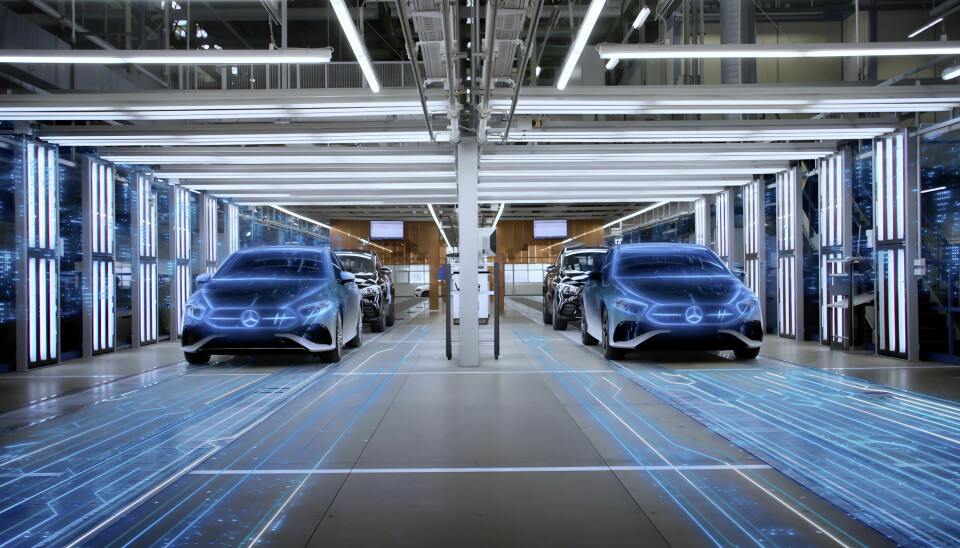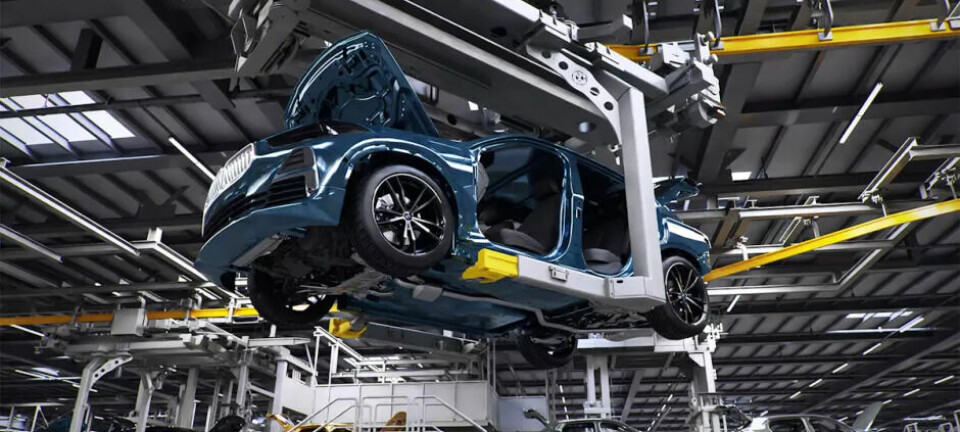Digital factory
Mercedes-Benz's plans for the smart factory

With the MO360 data platform, Mercedes-Benz connects its approximately 30 car plants worldwide. In 2023, ChatGPT was integrated into production. Our overview shows what plans the Stuttgart company generally has to make their factories smarter.
Artificial intelligence can improve and facilitate the daily work of employees - even in automobile production. Meanwhile, there are also generative AI applications at many places within Mercedes-Benz. In the summer of 2023, the company announced the implementation of ChatGPT in production, aiming to accelerate the use of intelligent tools in the digital ecosystem of production MO360, which was first introduced in 2020. One goal: to optimize the analysis of production data, for example from quality management. Here, ChatGPT supported employees in production as a language-based interface.
In the future, machines should be easier to operate through new UI and UX technologies. The new human-machine interfaces should be more intuitive, thus simplifying the programming and commissioning of systems. The company relies on globally uniform, user-friendly interfaces. The use of AI-controlled process technology in the topcoat booths of the Mercedes-Benz plant in Rastatt is a good example of how the Stuttgart-based company is trying to exploit energy-saving potentials. Last year, artificial intelligence took over the monitoring of relevant subprocesses, which, according to OEM, led to a 20 percent energy saving. This AI-controlled process technology is now being rolled out to other locations.
Architecture of energy distribution is being digitized
In addition to the goal of halving the CO2 footprint of each vehicle by 2030, the OEM also wants to become more sustainable in production. Tools for predictive optimization of energy use are already being used in the planning phase of production facilities. The smart factory supports sustainability, for example, through transparency within the IoT architecture, targeted shutdown of systems and components during non-production windows, and the digitization of the energy distribution architecture. New technologies are intended to help use direct current more efficiently and resource-conservingly and to enable the temporary energy storage of renewable energy.
Digital twins for Mercedes plants in Rastatt and Kecskemét
In September 2023, Mercedes-Benz created a completely digital representation of an entire hall at the Kecskemét plant for the first time. The company relies on NVIDIA Omniverse. "It enables us to virtually plan factories with unprecedented data quality," says production manager Jörg Burzer to Automobil Produktion. The data collected in the digital twin allows assembly processes to be optimized even faster and errors and defects to be detected early. The Mercedes-Benz plant in Rastatt also virtually represented and commissioned the conversion of an existing assembly hall in preparation for the production of the new MMA model for the first time in advance. For this purpose, all data from individual production systems were digitally recorded and planned, tested, and adjusted accordingly in the virtual space. Within twelve weeks, the hall was completely converted in the summer of 2023.
Two billion for retraining the Mercedes workforce
With digitalization and the increasing use of powerful AI systems, all job profiles at Mercedes-Benz are changing. As part of the Turn2Learn qualification initiative, Mercedes-Benz is investing more than two billion euros worldwide in employee qualification by 2030. Turn2Learn places a targeted focus on digitalization and AI. For example, in the two pilot programs D.SHIFT and Data Worker, more than 600 employees from production, production-related areas, and administration are retrained annually to become data and AI specialists.
Specifically for employees from production at German locations, D.SHIFT focuses on acquiring digital skills and contributes to the digital transformation of the workforce through this targeted retraining. With tailored digital learning content, production employees can qualify for employment opportunities in areas such as data analysis, artificial intelligence, or software programming for electromobility. This is intended to align them with future-proof employment profiles.
According to the people in Stuttgart, for the successful design of the transformation, you need not only the right digital tools and generative AI applications in the company. Even more important is a team that embraces change and constantly expands its digital skills. In the massive transformation of the working world, lifelong learning is and remains the key to success.
Mercedes-Benz sees Germany as a pioneer in smart factory
Germany has established itself as a pioneer in the digital transformation of the industry and plays a key role in the development and implementation of innovative technologies. Through close collaboration between government, industry, and research institutions, Germany has created a comprehensive framework that enables companies to seize the opportunities of Industry 4.0 and successfully position themselves in the international market. Politics and business must continue to ensure in harmony that the prominent position of the German industry is maintained and further expanded even in the phase of digital transformation, demands Mercedes-Benz.
